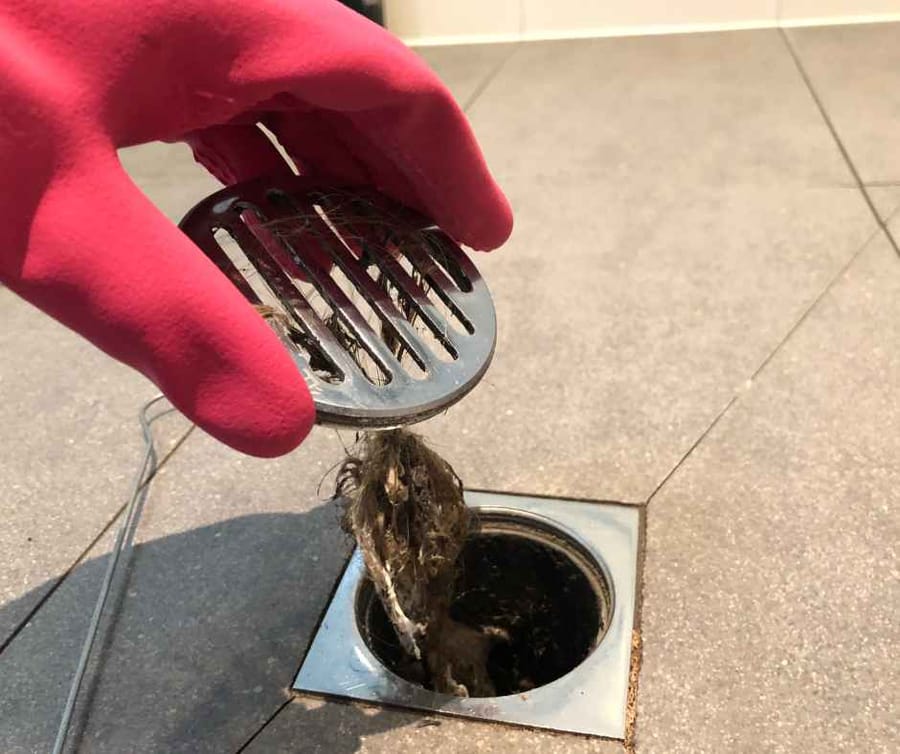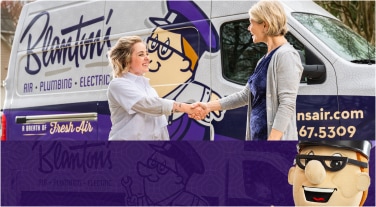0% No Interest Financing for 6 Months*
Delivering Trusted Service Since 1951
Back to Blog
How to Prevent Drain Clogs


Happy Customers Choose...
Nobody wants to deal with a clogged drain — it’s one of the most frustrating plumbing problems homeowners face. A slow-draining sink or standing water in your shower can quickly disrupt your day and lead to bigger issues if left unchecked. Drain clogs aren’t just annoying — they can cause foul odors, water damage, and even damage to your plumbing system over time.
The good news is that most drain clogs are completely preventable with a few simple habits and regular maintenance. Taking steps to keep your drains clear can save you time, money, and stress down the road. In this blog, we’ll explore why drain clogs happen, the warning signs to watch for, and the best ways to prevent them from happening in your home.
Why Drain Clogs Are a Common Problem
Drain clogs are one of the most frequent plumbing issues homeowners deal with — and for good reason. Every day, your home’s plumbing system handles water, soap, grease, hair, and food waste. Over time, these materials can stick to the inside of your pipes and start to build up, slowing down the flow of water.
Kitchens and bathrooms are especially vulnerable to clogs because of the types of materials that go down the drains. In the kitchen, grease, oil, and food scraps are common culprits. In bathrooms, hair, soap scum, and even toothpaste can collect in pipes and create blockages.
If clogs aren’t addressed quickly, they can lead to slow drains, foul smells, and even backups that cause water damage to your home. Worse yet, severe clogs can cause pipe damage or require expensive plumbing repairs. That’s why it’s so important to be proactive and prevent clogs before they start.
Key Signs & Causes of Drain Clogs
Understanding what to look for—and what causes the issue—can help you catch clogs early or even stop them before they start. Drain clogs often give off warning signs, and knowing what causes them will help you take the right steps to prevent future problems.
Common Signs of a Clogged Drain
Keep an eye out for these symptoms around your sinks, tubs, or toilets:
-
Slow-draining water in sinks, showers, or tubs
-
Gurgling sounds coming from your drains or pipes
-
Bad smells or musty odors coming up from your drains
-
Standing water in sinks or bathtubs that doesn’t go down
-
Water backing up into other drains when you use one fixture
These signs usually mean something is building up in your pipes, and it’s best to take action before the clog becomes worse.
Causes of Drain Clogs
Clogs form when certain materials build up or get stuck in your pipes. Common causes include:
-
Grease and oil buildup from cooking, which solidifies in your kitchen drains
-
Hair and soap scum collecting in bathroom sink, shower, and tub drains
-
Food scraps that aren’t rinsed properly or are pushed down without a disposal
-
Flushing non-flushable items, like wipes, feminine hygiene products, or paper towels
-
Tree roots that grow into outdoor sewer lines and cause major blockages
When you understand what causes clogs, it becomes much easier to avoid them through smart habits and regular maintenance.
Solutions & Ways to Prevent Drain Clogs
The best way to deal with a clogged drain is to stop it before it starts. Thankfully, there are plenty of simple, effective strategies you can use at home—along with knowing when it’s time to call in a professional.
DIY Tips to Prevent Drain Clogs
You don’t need to be a plumber to keep your drains running smoothly. Here are some practical habits that can make a big difference:
-
Use drain strainers: Place them in your sinks, tubs, and showers to catch hair, food particles, and other debris.
-
Avoid pouring grease down the drain: Instead, collect it in a container and throw it in the trash once it solidifies.
-
Run hot water after using the sink: It helps flush away small particles and keeps grease from hardening in the pipes.
-
Dispose of food scraps properly: Use the trash or compost instead of rinsing scraps down the drain—even with a disposal.
-
Clean drains monthly: Use a natural mix of baking soda and vinegar followed by hot water to break up residue and deodorize.
These easy steps can prevent most minor clogs and keep your drains healthy.
When to Call a Professional
Even with great habits, some drain issues need expert attention. If you notice any of the following, it’s time to call in the pros:
-
Clogs that keep coming back, even after you’ve cleared them
-
Multiple slow drains in different areas of your home
-
Water backing up into sinks, tubs, or toilets
-
Persistent foul odors that don’t improve with cleaning
-
Gurgling sounds from your drains or toilets when using water elsewhere
A professional plumber can use specialized tools and inspection equipment to find the root cause of the problem and fix it for good.
Additional Tips for Ongoing Drain Maintenance
Keeping your drains clear isn’t just about reacting to clogs — it’s about building good habits that prevent them altogether. Here are some extra tips homeowners can use for long-term drain health:
-
Schedule regular plumbing inspections: A professional plumber can catch small problems before they turn into big headaches.
-
Install a garbage disposal (and use it properly): Always run water while using the disposal and avoid overloading it with large amounts of food waste.
-
Avoid chemical drain cleaners: These products can damage your pipes over time and aren’t always effective at clearing tough clogs.
-
Use hair catchers in bathroom drains: These inexpensive tools prevent hair from going down the drain and causing buildup.
-
Educate your household: Make sure everyone in your home knows what can and can’t go down the drains, including proper disposal of grease, food scraps, and hygiene products.
Preventative maintenance takes a little effort, but it can save you a lot of trouble (and money) in the future.
Wrap-Up: Call Blanton’s Today!
Clogged drains are a common headache, but they don’t have to be part of your routine. With a few smart habits and regular maintenance, you can prevent most clogs before they start. By watching for early signs, avoiding the most common causes, and knowing when to call for help, you’ll keep your home’s plumbing system in top shape.
At Blanton’s Air, Plumbing & Electric, we’re here to help you stay ahead of plumbing problems before they disrupt your day. Whether you need a quick drain cleaning or a full inspection, our friendly team is just a call away.
Contact Blanton’s Air, Plumbing & Electric today to schedule expert plumbing services and keep your drains running smoothly.
Recent Posts
Make Blanton’s Your First Call!
Get Your service with a Wow!
Our Extraordinary Service Plan features maintenance, Service, & Support for Your Home
- Biannual HVAC tune-up and inspection
- Annual water heater inspection
- Annual electrical safety inspection
- No extra charge for Saturday service
- All repairs backed by a one-year warranty
- Exclusive members-only savings
- Priority service and dedicated support line
Learn More







